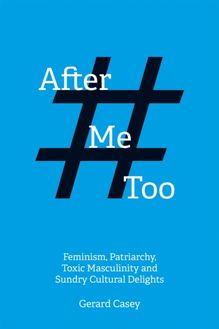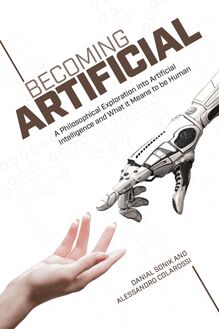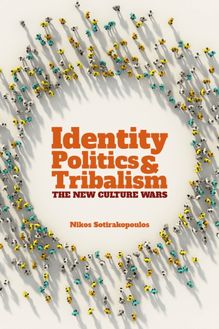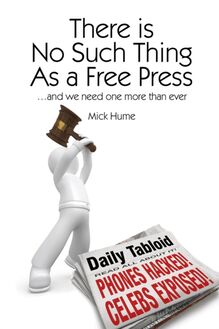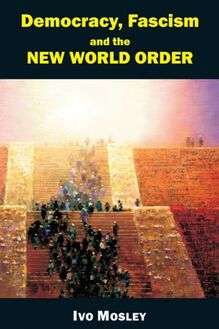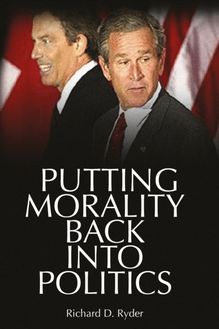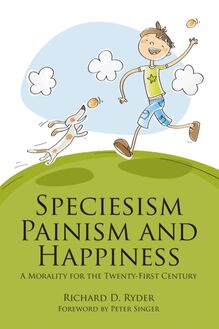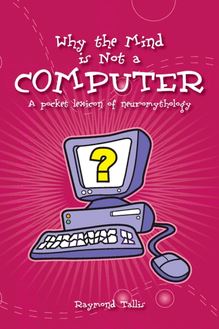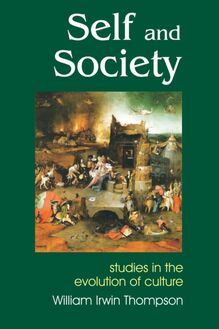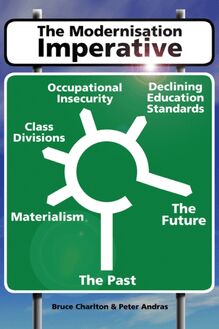-
 Univers
Univers
-
 Ebooks
Ebooks
-
 Livres audio
Livres audio
-
 Presse
Presse
-
 Podcasts
Podcasts
-
 BD
BD
-
 Documents
Documents
-
- Cours
- Révisions
- Ressources pédagogiques
- Sciences de l’éducation
- Manuels scolaires
- Langues
- Travaux de classe
- Annales de BEP
- Etudes supérieures
- Maternelle et primaire
- Fiches de lecture
- Orientation scolaire
- Méthodologie
- Corrigés de devoir
- Annales d’examens et concours
- Annales du bac
- Annales du brevet
- Rapports de stage
La lecture à portée de main
Vous pourrez modifier la taille du texte de cet ouvrage
Découvre YouScribe en t'inscrivant gratuitement
Je m'inscrisDécouvre YouScribe en t'inscrivant gratuitement
Je m'inscrisEn savoir plus
Vous pourrez modifier la taille du texte de cet ouvrage
En savoir plus

Description
Sujets
Informations
| Publié par | Andrews UK |
| Date de parution | 24 novembre 2020 |
| Nombre de lectures | 0 |
| EAN13 | 9781788360517 |
| Langue | English |
Informations légales : prix de location à la page 0,0550€. Cette information est donnée uniquement à titre indicatif conformément à la législation en vigueur.
Extrait
Becoming Artificial
A Philosophical Exploration into Artificial Intelligence and What It Means to Be Human
Danial Sonik
&
Alessandro Colarossi
SOCIETAS
essays in political
& cultural criticism
imprint-academic.com
Published in 2020 by
Imprint Academic Ltd
PO Box 200, Exeter
EX5 5YX, United Kingdom
imprint-academic.com
Digital edition converted and distributed by
Andrews UK Limited
www.andrewsuk.com
Copyright © 2020 Danial Sonik & Alessandro Colarossi
The rights of Danial Sonik and Alessandro Colarossi to be identified as the authors of this work have been asserted in accordance with the Copyright, Designs and Patents Act 1988.
All rights reserved. No part of this publication (except for the quotation of brief passages for the purposes of criticism and discussion) may be reproduced, stored in a retrieval system, or transmitted, in any form or by any means without the prior written permission of the publisher, nor be otherwise circulated in any form of binding or cover other than that in which it is published and without a similar condition being imposed on the subsequent purchaser. Any person who does so may be liable to criminal prosecution and civil claims for damages.
The views and opinions expressed herein belong to the author and do not necessarily reflect those of Imprint Academic or Andrews UK Limited.
Get lost in this book,
in a way only a human can.
Preface
Artificial intelligence (AI) is a hot topic as we write this preface in 2020. To be fair, AI has been a hot topic for the past few decades, but it has only been recently (in the past five or so years) that many approaches in deep learning have begun to bear fruit, a bumper crop that we are still only struggling to harvest today. This is why there is so much consternation on all fronts as to how AI will affect what we today consider the “status quo” in human society and behavior.
This social concern (and dare we say it, dismay) is reflected in a number of alarmist journal articles that seem to have headlines preparing everyone for the worst. To take some of the most straightforward and panic-inducing examples: “Higher Paying White Collar Jobs Will Be Heavily Impacted By AI,” “AI Will Transform 500 Million White Collar Jobs in 5 Years; Silicon Valley Must Help”, “Is AI Going to Be a Jobs Killer?”, and “Types of Jobs AI Will Eliminate by 2030.”
Of course, we all know that the news thrives on panic and speculation. If it bleeds, it leads. News sites get paid by the click, and clicks only come from people who feel some sort of anxiety about the future and want to prepare for the worst. Similar types of doomsday pronouncements were made in the lead up to Y2K, and they all pretty much turned out to be a nothing burger (with the exception of a few inconvenient and embarrassing counterexamples, such as minor flight delays, some websites incorrectly referring to the new year as 1900, and, of course, a small contingent of babies born already 100 years old due to lack of updates to computer software running in hospitals).
Sampling the many books that glut this popular field, it appears as though they can be broken down into one of three camps. First, there are the “gee whiz” triumphalists (Max Tegmark calls them “digital utopians” ) who talk seriously and with a straight face about being able to upload consciousness into “the cloud” and gain a sort of digital immortality. Offenders in this genre include the absolutely brilliant (albeit, in our opinion, misguided) Ray Kurzweil ( The Age of Spiritual Machines ) and fellow Kool-Aid drinker Michio Kaku ( The Future of Humanity: Our Destiny in the Universe ). Then, there are the techno-apocalyptics (Tegmark refers to them as “luddites”) who think that AI is setting humanity up for a disaster it will not recover from. Folks in this category include James Barrat ( Our Final Invention ) and the late Stephen Hawking, who was quoted as saying at a web summit technology conference: “Unless we learn how to prepare for, and avoid, the potential risks, AI could be the worst event in the history of our civilization. It brings dangers, like powerful autonomous weapons, or new ways for the few to oppress the many. It could bring great disruption to our economy.” The third camp in the AI biblioverse is authors who take a measured approach—AI is not going to solve all of our problems, but nor is it going to bring us to the brink of destruction. Max Tegmark ( Life 3.0 ) and Nick Bostrom ( Superintelligence: Paths, Failures, Strategies ) fall into this camp.
This book chooses a fourth way, comprising both pragmatic and philosophical components. On the pragmatic side, AI will change the world—no question. On the philosophical side, the changes that will be ushered in by AI will have NOTHING to do with AI’s ability to have or gain sentience. There are simply too many features of human consciousness and sentience that cannot be described in algorithmic form, and therefore are not amenable to any computational approach, even though computational approaches seem to be the only game in town when it comes to building artificial intelligence.
In order to pursue this fourth way, we aim to tackle a significant subset of the most pressing problems for humanity to consider (and possibly solve, if they are tractable) with respect to this topic in the form of both fictional and non-fictional treatments. Fields such as elder care, warfare, journalism, academic knowledge production, and the legal profession are all poised for a radical transformation due to relatively recent advances in AI. However, the AI methods that have contributed to this massive transformation hold little promise or insight into the holy grail that seems forever to recede into the distance—how to generate an actual instance of consciousness using nothing more than silicon chips and electricity.
In the first chapter, we provide an abridged history of AI, highlighting the most important parts relevant for our key argument. After providing a brief history of this discipline in computer science, we hope to take you on a journey from the beginnings of AI to its current state today and the eventual form that it might have in the next 50 years.
Then, in Chapter 2, we recount and elaborate philosophical arguments originally formulated by Merleau-Ponty on the irreducible importance of embodiment in the development of intelligence and the sense of self. In doing so, we will ponder the question of just how feasible “abstract consciousness” is given the seeming primacy of our bodies in how we model and interact with our world.
For Chapter 3, we zoom in on the mind itself and canvas a number of approaches (all currently unsuccessful without major, and as yet unknown, modifications) that attempt to model the mind. We conclude that the mind itself appears to be an intractable problem and unlikely to be instantiated in an AI given the state of the art in machine learning and machine intelligence as we write this in 2020.
Notwithstanding the skeptical conclusions in the previous chapter, “The Changing Nature of War” describes the ways AI will be applied to warfare. This application opens up the very real possibility of machines taking human lives according to their programming and prompts an ethical discussion of how to deal with this future.
In Chapter 5, we look at the idealistic portrayal of AI and robots in film and highlight the “uncanny valley effect” that always seems to arise whenever AI is represented in fiction. We will argue that the uncanny valley is not merely an artifact of how well the AI is portrayed, but rather is an unbridgeable gulf in principle between what we think robots can do and what they can actually do. We also highlight how the “uncanny valley” and its “imagination of the artificial” also evolve in human history.
Chapter 6 talks about the rise of “emotional support robots,” arguing that while such AI creations may not have any inner life as such, they nevertheless get imbued with human characteristics by their human “lovers.” This, in turn, will provide a good explanation for why humans constantly seek out a form of “sentience” in their AI/robotic creations, even though there are no grounds for actually thinking that their little mechinic companions in fact do possess sentience—rather, we give them the sentience by including them in our social rituals.
“Alone at the Water Cooler,” Chapter 7, looks at how the world of work is going to be transformed by AI, in particular in the areas of speech and language processing. Current text generation applications such as GPT2 seem to be able to generate block after block of superficially intelligible text given huge libraries of input (i.e. scraping the internet). However, will their ability be enough to displace people who rely on the written word for their livelihood? And who would be the consumers of such computer generated text in the first place?
In “Do As You Are Told”, we argue that, ultimately, any AI must of necessity and by design be composed of a set of finite and discrete instructions (whether these instructions are human generated or else created by the computer on a path of “machine learning” does not matter). This is ultimately because no machine can be coded with either will or desire. Moreover, we have no adequate theory or algorithm by which we would be able to encode these mysterious human traits.
“The Devil Made Me Do It” looks at the question of legality and ethics in a world shared by humans and AIs. While we will maintain that AIs will never have the sentience possessed by humans, it might nevertheless be possible for them to be party to legal actions in the same way that corporations currently are. This could pose massive problems for a justice
-
 Univers
Univers
-
 Ebooks
Ebooks
-
 Livres audio
Livres audio
-
 Presse
Presse
-
 Podcasts
Podcasts
-
 BD
BD
-
 Documents
Documents
-
Jeunesse
-
Littérature
-
Ressources professionnelles
-
Santé et bien-être
-
Savoirs
-
Education
-
Loisirs et hobbies
-
Art, musique et cinéma
-
Actualité et débat de société
-
Jeunesse
-
Littérature
-
Ressources professionnelles
-
Santé et bien-être
-
Savoirs
-
Education
-
Loisirs et hobbies
-
Art, musique et cinéma
-
Actualité et débat de société
-
Actualités
-
Lifestyle
-
Presse jeunesse
-
Presse professionnelle
-
Pratique
-
Presse sportive
-
Presse internationale
-
Culture & Médias
-
Action et Aventures
-
Science-fiction et Fantasy
-
Société
-
Jeunesse
-
Littérature
-
Ressources professionnelles
-
Santé et bien-être
-
Savoirs
-
Education
-
Loisirs et hobbies
-
Art, musique et cinéma
-
Actualité et débat de société
- Cours
- Révisions
- Ressources pédagogiques
- Sciences de l’éducation
- Manuels scolaires
- Langues
- Travaux de classe
- Annales de BEP
- Etudes supérieures
- Maternelle et primaire
- Fiches de lecture
- Orientation scolaire
- Méthodologie
- Corrigés de devoir
- Annales d’examens et concours
- Annales du bac
- Annales du brevet
- Rapports de stage
